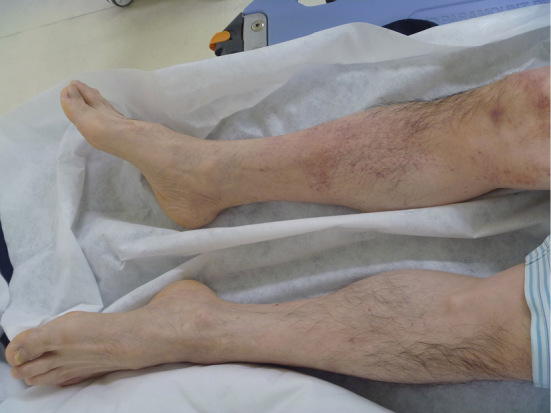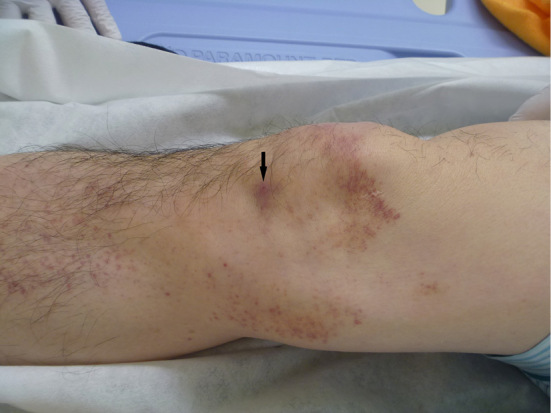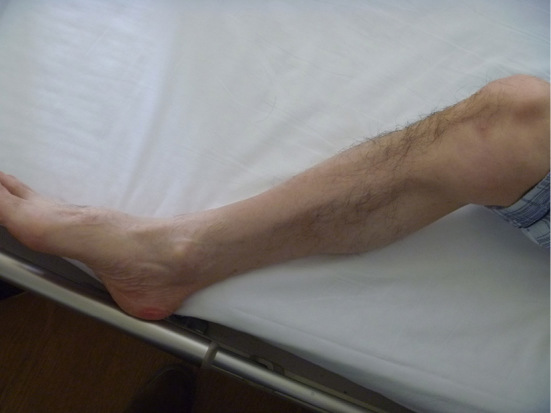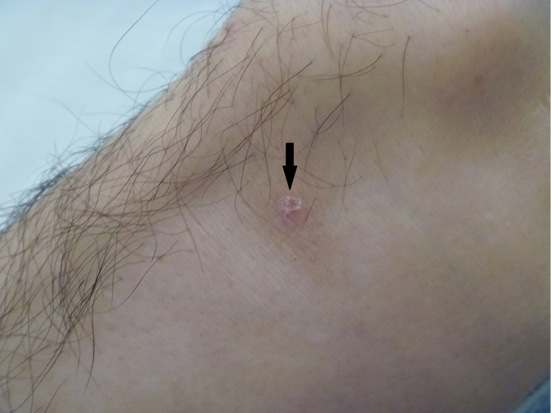A 73-year-old Japanese man was referred to Hiroshima Prefectural Hospital with a 6-day history of fever. Nine days prior to admission, he had received a tick bite on his right knee while picking bamboo shoots. Three days after the bite, he developed a fever with shaking chills. Minocycline was prescribed at a local clinic, but his symptoms did not resolve. On admission, his consciousness was unclear. Petechiae were observed on his right lower limb (Picture 1). The tick bite site had formed an obscure eschar (Picture 2). His platelet count was 110×103/μL. The patient was suspected of having severe fever with thrombocytopenia syndrome (SFTS), and was treated with supportive measures. SFTS viral nucleic acid was detected through a polymerase chain reaction in his serum sample. The petechiae disappeared on the 12th day of admission (Picture 3), but the eschar remained at that time (Picture 4). The patient thereafter successfully recovered and was discharged.
Picture 1.

Picture 2.

Picture 3.

Picture 4.



